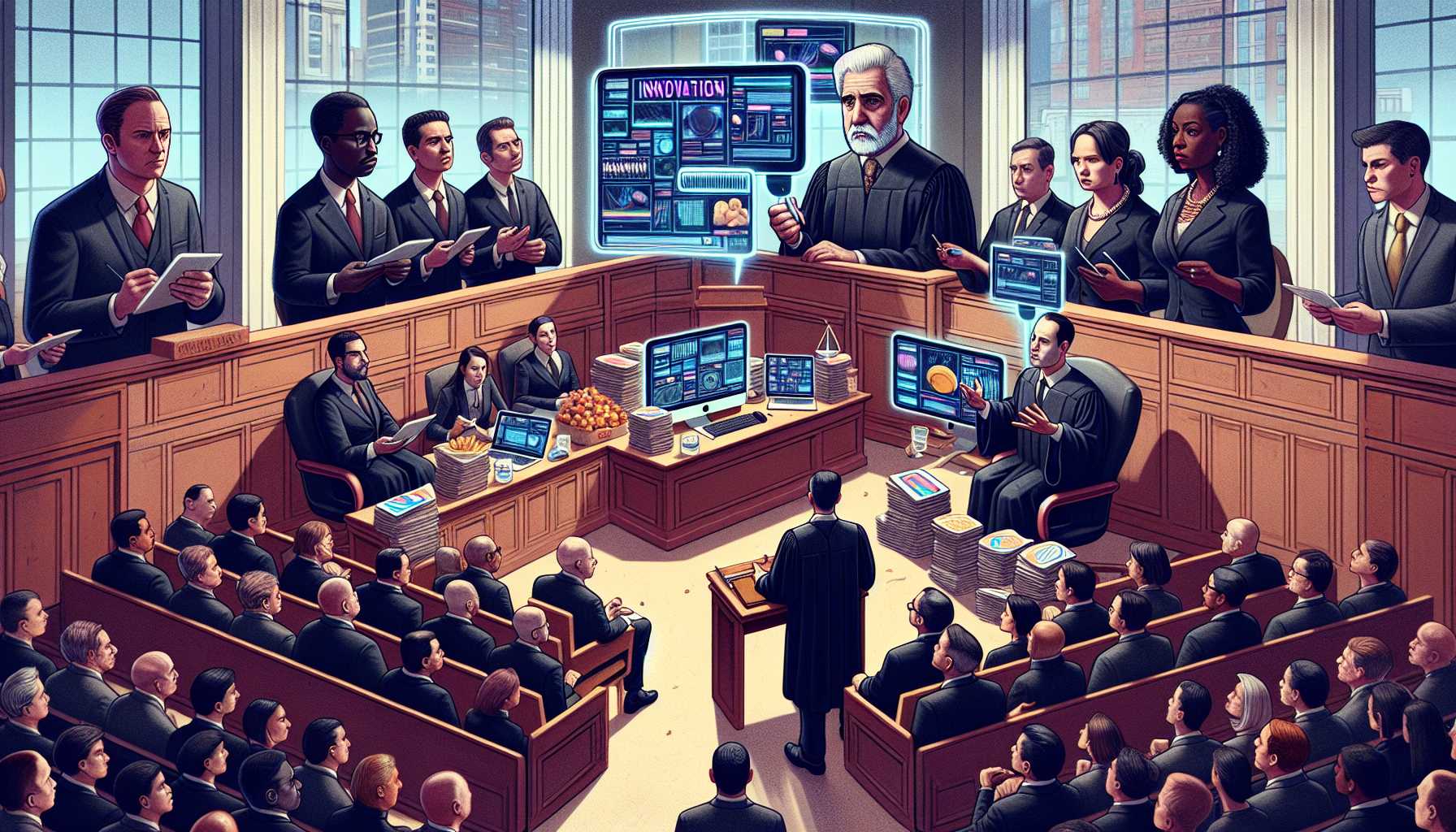The Epic Apple Rumble: A Tale of Trust, App Stores, and Legal Tangles
In the high-octane tech arena, few battles have raged as intensely as the clash between Epic Games and Apple. It’s a saga that pits the corporate Goliath against a feisty David, flinging legal lawsuits like proverbial slingshots. At the heart of the discord lies a fundamental dispute over the sanctity of digital marketplaces and the power companies wield within them. For tech enthusiasts, entrepreneurs, and casual onlookers alike, the unfolding drama is more engrossing than a season finale cliffhanger.
Epic Games, the rebel with a cause, thrives on innovation and disruption. It envisions a digital utopia where app stores flourish in the fertile soil of fair competition, free from the shackles of monopolistic practices. Yet their aspirations hit a stumbling block when Apple, wielding the swift axe of authority, terminated Epic’s developer account with accusations of mistrust.
As a product manager leader and tech aficionado, I see this as not just a corporate skirmish but a defining moment for industry ethics and future developer freedoms. The removal of Epic’s developer account stymies the company’s efforts to establish its third-party app store, intended to be a bastion of choice for iOS users in the European Union. The power play raises eyebrows and stokes fears of a chilling effect on other developers who dare challenge the status quo.
But Epic’s indefatigable spirit remains unbroken as they eye alternative paths to restore Fortnite to iOS through other third-party stores, maneuvering within the EU’s forthcoming digital market regulations. This saga underscores the tension between innovation and control in the tech world. While Apple upholds its tight grip on the App Store, ostensibly to safeguard users, it simultaneously imposes what some view as draconian measures that stifle competition. Whether Apple’s actions are protective or predatory is a debate currently unfolding in both the court of law and public opinion.
The Siren Call of AI: Progress, Peril, and the Duty of Care
Elsewhere in the tech cosmos, Microsoft’s AI image generator, powered by the DALL-E 3 model, surfaced anxieties from within its own ranks. Shane Jones, a Microsoft engineer, raised the alarm on the AI’s penchant for generating content that veers into the unsettling realms of violence and explicit imagery. This revelation serves as a sobering reminder of the dual-edged sword that is AI technology.
The potential pitfalls highlighted by Jones are not merely technical glitches but ethical landmines that demand meticulous navigation. As images of beloved Disney characters warped into discordant contexts surfaced, so too did the imperative for rigorous safety measures and moral frameworks in emerging technologies. These concerns, echoed across the industry, illustrate the complex responsibilities developers bear as they strive to harmonize innovation with societal norms.
The fascinating world of AI development is as fraught with risks as it is ripe with possibilities. As an advocate for technological advancements, I urge a balanced approach where safeguarding the digital ecosystem is given equal weight to the pursuit of progress. Crafting AI tools that ennoble rather than degrade, elevate discourse rather than disrupt it, is the challenge we must rise to meet.
Amazon’s Eco-friendly Pivot: A Recycling Revolution
In a refreshing contrast to the foreboding shadows cast by potential AI catastrophes, Amazon strides forth with a promising eco-initiative. Its recent alliance with Glacier illustrates an earnest attempt to close the loop on the copious waste generated by its packaging practices. The use of robots to meticulously sort recyclables, coupled with AI scanners to trace the life cycle of packaging, ushers in a new era where technology serves as a steward for sustainability.
Amazon’s courtship of eco-conscious practices is noteworthy and underscores a fundamental shift in how tech conglomerates perceive their role in the broader environmental narrative. This commitment to a “circular economy supply chain” is a laudable stride towards their net-zero carbon emissions goal. Encouragingly, this greener vision from a titan of industry could signal a tipping point, inspiring others to follow suit and collectively lessen the burdens on our planet.
The Assault of Deepfakes: Democracy’s Digital Demons
The specter of deepfakes looms large over the democratic process, casting a pall of distrust and deception. Studies poignantly reveal the exponential growth of AI-generated disinformation, particularly around election cycles. With deepfake technology at their disposal, malevolent actors wield a potent tool to manipulate opinions, distort facts, and undermine electoral integrity.
As technology continues its inexorable march forward, the ramparts safeguarding truth become ever more critical. Social media platforms find themselves on the frontline, contending with the Herculean task of mitigating falsities as they proliferate across networks. The public’s discernment is tested, trust erodes, and the integrity of democracies is imperiled. This landscape asks of us—a collective composed of developers, policymakers, and vigilant citizens—an unwavering commitment to vigilance and innovation in defense mechanisms. The cudgel of regulation and the shield of education must be borne with purpose, ensuring that the marvels of AI do not give way to societal vexations.
OpenAI vs. Musk: The Drama of Disagreement and Direction
In the Silicon Valley equivalent of high-stakes drama, OpenAI enters the litigious arena against one of its own co-founders, Elon Musk. The lawsuit tosses around weighty accusations, betrayals, and ideals diverging from their intended path. Throughout the company’s journey, the pivot from non-profit purist to profit-driven pioneer persists as the crux of contention.
Musk’s allegations paint OpenAI’s shift as a betrayal of foundation, but the nuanced situation revealed through leaked emails tells a tale of changing tides and evolving strategies. OpenAI’s founders, through their collaborative rebuttal, argue for a course correction in pursuit of the vast computational resources needed to advance AGI. The intricacies of this legal saga peel away at layers that go beyond mere profits and into the heart of mission and methodology. It is a quintessential example of the tug-of-war between entrepreneurial vision and ethical conduct, shaping the very fabric of our modern technological tapestry.
As an observer and participant in the tech ecosystem, one cannot help but be captivated by the unfolding narrative, as it ultimately shapes the evolution of AI and its role within our lives. In closing, the evolving stories within the tech industry are as diverse as they are interconnected, painting a portrait of a sector at the vanguard of societal shifts. Navigating these waters requires not only technical prowess but a keen awareness of the currents that shape our collective future. The interplay of legalities, innovation, ethics, and responsibility forms a complex tapestry we strive to unravel—one news cycle at a time.





